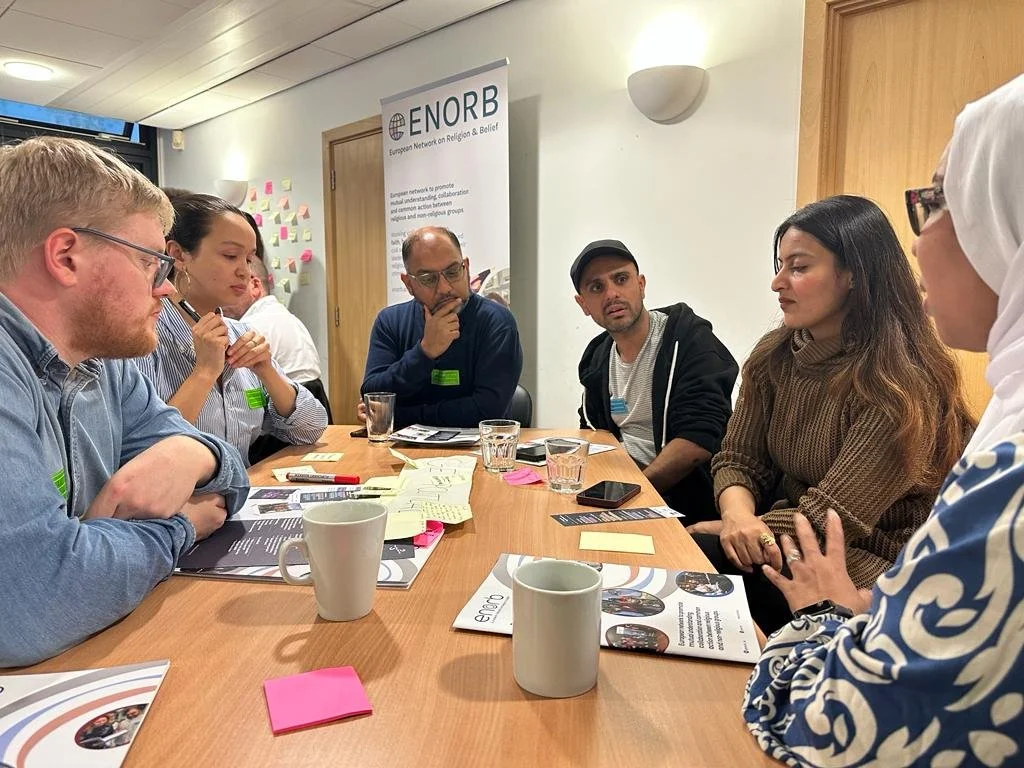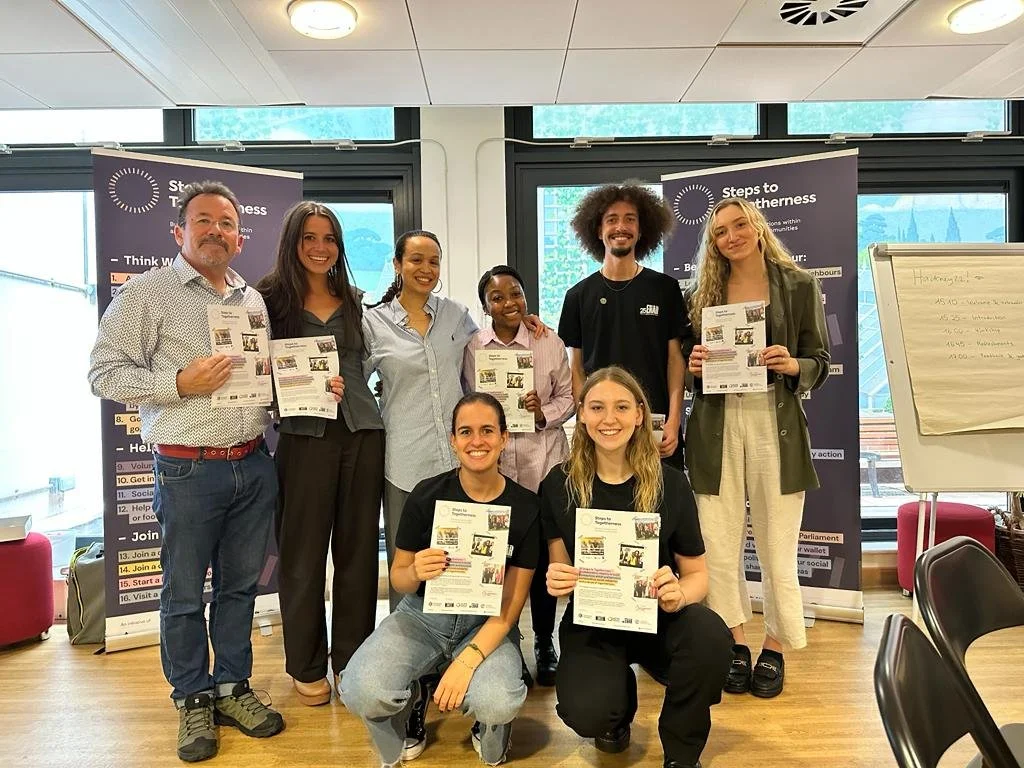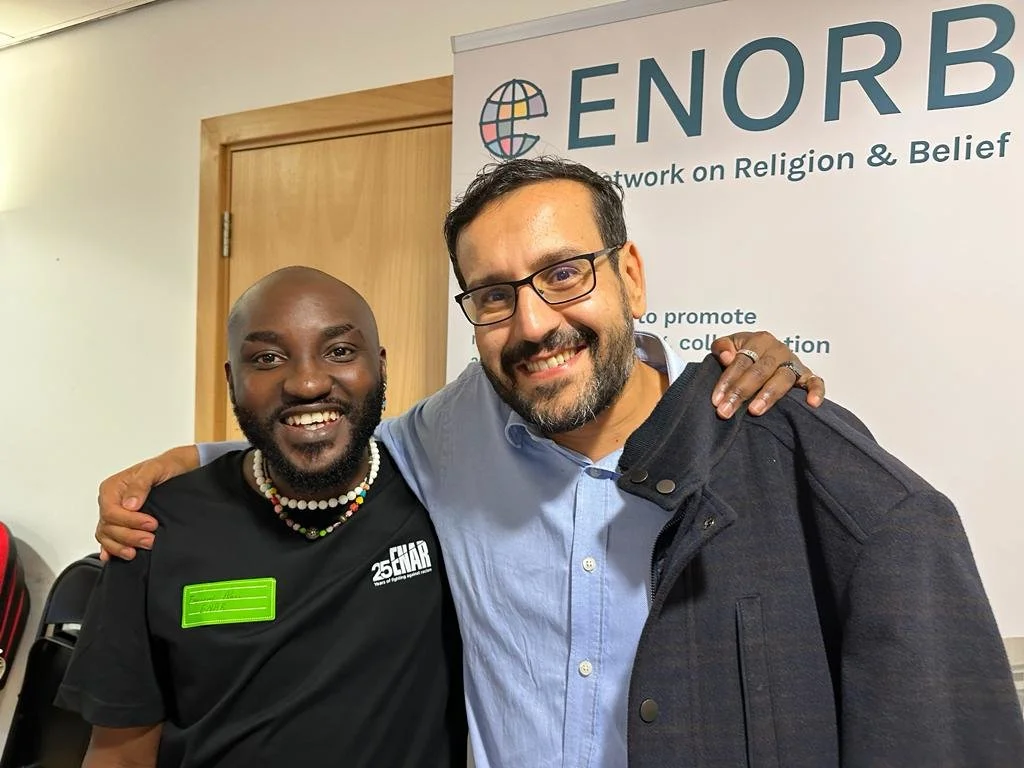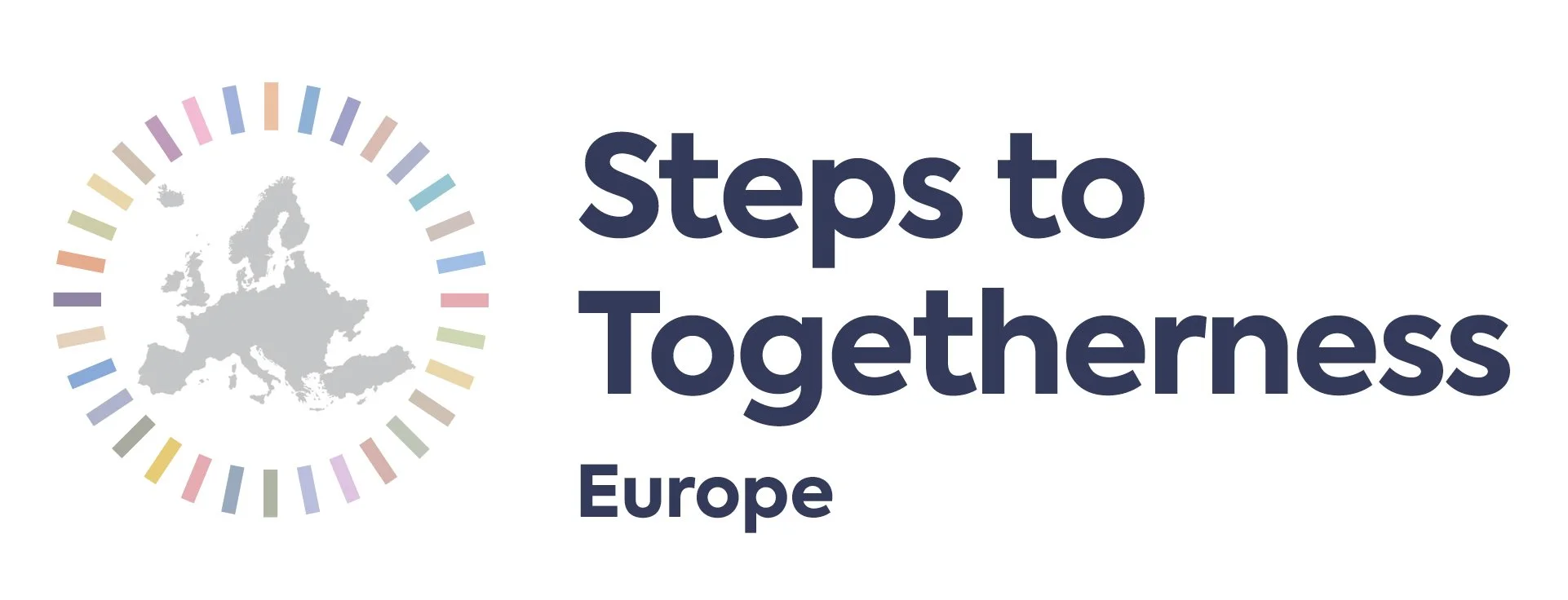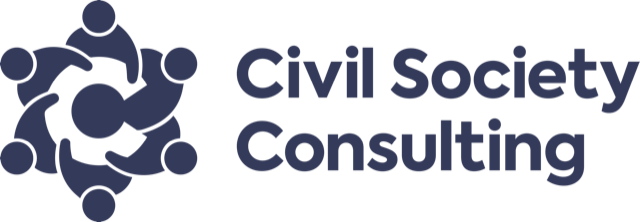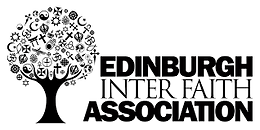32 Steps to Togetherness:
a European initiative to build a sense of togetherness,
led by young Europeans
On October 11, we held a workshop in London in collaboration with our long-term partners at Civil Society Consulting, in the occasion of the European Network Against Racism’s #MakeRacismHistoryFestival.
We discussed strategies and brainstormed ideas to build stronger and more resilient communities with over 40 community organisers and social action leaders.
Some of the key areas of the manual that were collaboratively discussed were:
Change your habits
Help Out
Join Something
Get Political
Read our takeaways here!
From left to right, Stewart Yarlett (Faiths Forum for London), Francesca Godfrey (Civil Society Consulting), Abdullah Faliq (ENORB Board Member), Sakib Khan, Amara Bandukada (Iraqi Innovators) and Zahra Ibrahim
ENORB & Civil Society Consulting CIC Team
Emmanuel Achiri, Policy & Advocacy Advisor at the European Network Against Racism and Mustafa Field, Director at Faiths Forum for London
READ THE MANUAL
Maryana Hnyp, President at the European Network on Religion and Belief
"In these troubling post-pandemic times, it can be hard to find positive and engaging ways to get out there and meet people. '32 Steps to Togetherness' develops an accessible 'social prescribing' scheme: to open-up, connect and reconnect, while focusing on emotional and spiritual wellbeing as individuals and how we can all make Europe more tolerant, cohesive and united.“
OUR STORY
Loneliness and social fragmentation are weighing on Europe
Modern life raises plenty of challenges that seriously affect our life and mental health. The pandemic has highlighted a persisting issue: loneliness is on the rise, as people are increasingly isolated within their communities. As a result, society is fragmented and people are less tolerant of others.
As young Europeans, we want to create a European version of the 32 Steps To Togetherness, in order to tackle the loneliness and disconnection we are seeing across the continent and move towards a happier society and a healthier democracy.
ENORB Team at EU Anti-Racism Civil Society Forum, 2023
Finding a solution
The bleakly challenging future ahead can feel extremely discouraging: climate change, global conflicts, the complex economic consequences of the pandemic, rising racism and the spreading of false narratives are just a few examples. Being constantly bombarded with depressing news reduces our shared imagination of a better future for all. An intense sense of dread and disempowerment adversely affects our mental health and behaviour.
These issues seem so complex that we might feel, as individuals, we don’t have any means to effectively shape things in a better way. For example, it’s hard to justify individual climate action without collective engagement. At ENORB, we want people to take steps to repair our fragmented society. To empower them to do so, ENORB is partnering with Civil Society Consulting CIC, our long-standing colleagues and friends, leveraging their expertise in tackling these issues in the UK. And, we are looking for other partners too.
32 Steps to Togetherness
As young Europeans, we experience societal fragmentation and loneliness daily. We believe tackling loneliness and isolation can start with individuals at a community level.
32 Steps to Togetherness is a manual providing a comprehensive list of practical actions individuals can take to build connections in and between communities, by: changing how we think about interactions; developing social relationships in our local neighbourhoods and our workplaces; and through small but significant changes to our habits and hobbies. For example, don’t let the fear of awkward moments stop you from having meaningful interactions.
By building more and better connections, 32 Steps aims to counter both loneliness and social fragmentation - including intolerance of others. When we experience society as a shared space, we can develop a shared vision for tackling other issues.
The 32 Steps on Togetherness manual was developed by Civil Society Consulting (CSC) - a UK-based non-profit organisation that aims to promote health, equality and cohesion by strengthening civil society. It has already been published and disseminated in the UK - and was very well-received.
Inspired by CSC’s efforts, ENORB has decided to take this initiative to mainland Europe, led by a group of young Europeans, including three of ENORB’s interns. By sharing 32 simple yet powerful tips, CSC’s 32 Steps manual calls each of us to take action to build connections in our communities, and with people from all walks of life. “As young professionals in Europe, we figured that communities across Europe share similar social and political challenges as the UK, and we have a vision for making 32 Steps to Togetherness accessible to everyone across Europe,” explained Lorenzo Capomaggi, Project Lead.
Do you, like us, want to see people more connected within and between communities? To be a success, we need help from fellow young people across Europe with the translation process, and your help to spread the word about 32 Steps to Togetherness. If this is you, please join us.
You can help us by sharing the link to 32 Steps on your social media channels, to start getting the word out about the open resource. Start by retweeting ENORB and CSC.
Are you an organisation working on tackling loneliness and social fragmentation?
We’re on the lookout for potential partners ready to disseminate 32 Steps to Togetherness in the UK and in Europe. Whether loneliness reduction is your core focus or you’ve simply noticed it is a common issue your service users experience, you can get involved!
We agreed already to involve the European section of the United Religions Initiative (URI), an important global grassroots interfaith network, cultivating peace and justice. They will be a valuable partner developing and disseminating our project, but we’re looking for many more!
Both the English and the European versions are a free, open resource. If you’re interested in sharing those with your service users, you’d be joining a growing list of UK-based organisations already sharing this resource, like Carers Trust, The Faiths and Beliefs Forum or Connection Coalition, and the UK Tackling Loneliness Hub. Email natasha@civilsocietyconsulting.co.uk or mireia@enorb.eu to register your interest.
We’re all really looking forward to working with you!
Lorenzo, Natasha, Özge, Mireia, Francesca, Sadia, Rebecca, Mark, Nasim, Abdullah, Yvan, Maryana, Enrique, Karim
Additional information
What makes 32 Steps to Togetherness valid?
32 Steps has been developed iteratively, and based on several different sources and evidence bases. Jon Yates’ well-researched book “Fractured”was the initial inspiration for the 32 Steps concept. The book, which is aimed at individuals from all sections of society, focuses on how social relationships can be established and strengthened in our local neighbourhoods, our workplaces, and through our habits and hobbies. To translate the 32 Steps in Jon Yates’ book into practical, accessible steps, CSC drew UK Campaign to End Loneliness’ literature, which CSC has translated into an accessible Loneliness Learning Programme currently being rolled out in UK communities thanks to Government funding, and on Noreena Hertz’s book “The Lonely Century”, which asserts that we need to reconnect “not only with those similar to us but also with the much wider community to which we ultimately belong”.
Last but not least, in developing 32 Steps to Togetherness, the CSC team drew on its own experience: (1) working with grassroots organisations in disadvantaged communities across the UK during and in the wake of the pandemic and (2) building connections between civil society organisations through initiatives such as Stories of Togetherness and the Book Club for Wellbeing and Connection.
ENORB is well-placed to lead the ‘Europeanisation’ of 32 Steps: ENORB represents and connects different European communities, constantly working for a more inclusive society in matters of religious hatred, racism and any other kind of discrimination. Combining the two organisations' resources, and with your help, we hope to deliver a universal manual capable of making a difference for as many as possible.
Why should I care about loneliness and social fragmentation?
Loneliness is deemed by many as one of the most significant health concerns we face. Older people and lower-income communities are particularly at risk of experiencing loneliness. The consequences of loneliness on health are well-researched and documented. According to the Campaign to End Loneliness, Loneliness is as damaging as smoking 15 cigarettes per day and increases the risk of death by 26%. For more information on loneliness, its impacts on health and its prevalence, visit the Campaign to End Loneliness.
However, loneliness is not only a health matter, it is also a political one. It has long been theorised that loneliness and social fragmentation are the foundations upon which terror and totalitarian regimes are built. The ability to act together and assemble is the source of one’s political power and a fundamental right. But what happens when repressive policies like lockdowns, climates of insecurity or individualistic lifestyles threaten such rights? Citizens feel powerless and totalitarian regimes prey on that feeling to sneak back into governments. We are witnessing it right now in many European countries: populations are polarised, and fascism is rising. Reducing loneliness and social fragmentation is the first step to empowering people to fight back against repressive governments. For more information on the political consequences of loneliness, you can read this article.
About Us
About the European Network on Religion and Belief (ENORB)
ENORB is a European network for mutual understanding, collaboration and common action between religious and non-religious groups. As a membership-driven organisation, we strive to provide a civil society platform of different religions, beliefs and convictions to facilitate dialogue, solidarity and promote the rights and freedoms enshrined in the Articles of the Treaty of Lisbon 2008 and the EU Charter on Fundamental Rights and in other international human rights conventions.
ENORB aims to work collaboratively and in partnership with faith, belief and anti-racist based civil society organisations and their leaders to combat community harms, racial and religious discrimination, hate crimes; and to promote stronger, safer and more resilient community responses, and strengthen mutual understanding and harmony in the field of Religion and Belief.
@enorb_eu
About Civil Society Consulting Community Interest Company (CSC)
Civil Society Consulting CIC is a London-based not-for-profit. CSC wants to contribute towards making communities healthier, more equal and more cohesive, and believe civil society organisations (CSOs) are the key, particularly those which are led by the communities they’re seeking to serve. With a mission is to support, catalyse and empower civil society, CSC’s work falls into three categories:
Being a reliable source of excellent but affordable consultancy support for small and medium sized charities, to enable them get key outputs off the ground and over the line;
Providing free support to grassroots organisations ‘led by and for’ marginalised communities through our flagship initiative, Steps to Sustainability;
Commissioned-based work: As well as supporting civil society organisations of various sizes, CSC also works with funders, think tanks, corporates and housing associations, who want to do a better job at working with civil society, or develop a better understanding of communities they’re not reaching. For example:
We were commissioned by a thinktank, NPC, to explore how to embed DEI principles in grantmaking.
We conducted community research into generational poverty in eight ‘priority’ communities across the North East of England, to inform community investment priorities for North Star Housing Group.
www.civilsocietyconsulting.co.uk
@CivilSocietyCIC
About United Religions Initiative (URI)
United Religions Initiative is a global grassroots interfaith network that cultivates peace and justice by engaging people to bridge religious and cultural differences and work together for the good of their communities and the world.
URI implements its mission through local and global initiatives that build the capacity of our member groups and organizations, called Cooperation Circles, to engage in community action such as conflict resolution and reconciliation, environmental sustainability, education, women’s and youth programs, and advocacy for human rights.
Europe is one of the eight URI regions, alongside Africa, Asia, Latin America, the Middle East and North Africa (MENA), Multiregional Region, North America, South East Asia and the Pacific (SEAP). In the European region, more than 60 URI Cooperation Circles are active in nearly 30 countries.
@URIEurope
In partnership with


